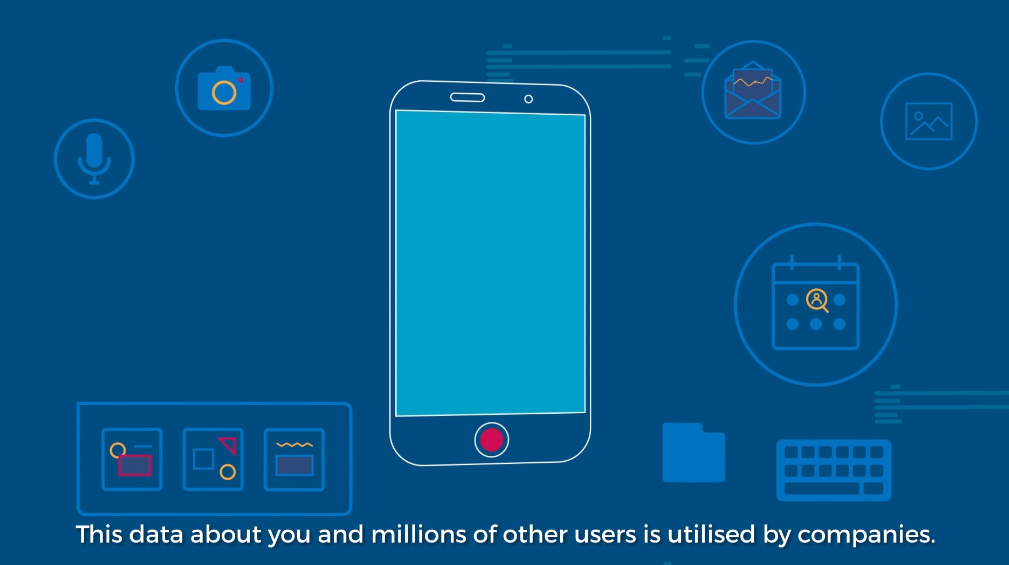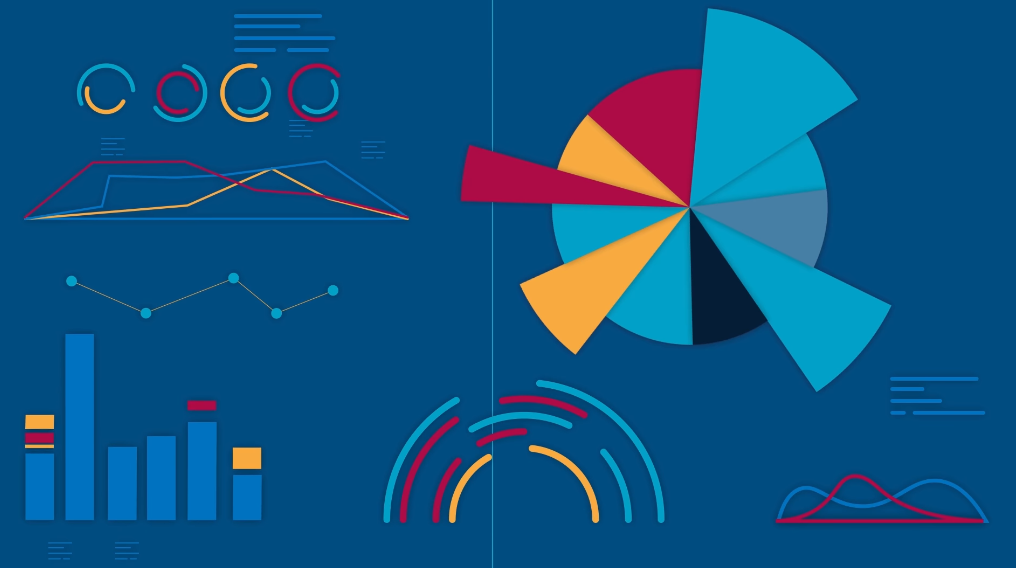Significance of Privacy in The Digital Age

Privacy in the digital age is of significant importance as our personal information is constantly being collected, stored, and shared by various entities. With the increasing use of technology, we have become more vulnerable to cyber-attacks, identity theft, and data breaches. Our personal information such as name, address, phone number, email address, and financial information is being collected by social media platforms, search engines, online retailers, and other online services.
Understanding Privacy Laws
In today’s digital age, it is important to understand privacy laws and regulations that protect our personal information. These laws vary by country and region, but they generally aim to regulate the collection, use, and disclosure of personal information. For example, in the United States, the main privacy law is the Privacy Act of 1974, which regulates how federal agencies collect, use, and disclose personal information.
Scope of Privacy Laws
The scope of privacy laws can vary depending on the country and region. Generally, privacy laws aim to protect personal information, which can include things like names, addresses, phone numbers, email addresses, social security numbers, and financial information. These laws may also cover sensitive information such as medical records, criminal records, and information about a person’s race, ethnicity, religion, or sexual orientation. Privacy laws can apply to various entities, including government agencies, businesses, and individuals.
Background And Evolution of Privacy Legislation
Privacy legislation has a long and complex history that has evolved. In the United States, the concept of privacy was first recognized as a legal right in the late 19th century, when courts began to recognize the right to privacy as a component of common law. This recognition was based on concerns about the use of new technologies, such as photography and the telephone, which made it easier to invade people’s privacy.
Key Principles of Privacy Laws
Over time, various privacy laws have been enacted to protect individuals’ personal information. These laws are based on several key principles, including:
1. Notice and consent: Individuals have the right to know what personal information is being collected about them and how it will be used, and they must give their consent before their information can be collected and used.
2. Purpose limitation: Personal information can only be collected and used for specific purposes that are disclosed to individuals at the time of collection.
Role of Privacy Laws in Data Protection
Privacy laws play a crucial role in data protection by setting clear guidelines and standards for how personal information should be collected, used, and shared. These laws help to protect individuals from having their personal information misused or mishandled by organizations and businesses. By requiring organizations to obtain consent and limit the purposes for which personal information can be used, privacy laws help to ensure that individuals have greater control over their personal information and can make informed decisions about how it is used.
Mitigating Risks Associated With Data Breaches

Mitigating risks associated with data breaches is an important aspect of protecting personal information. Organizations can take steps such as implementing strong security measures, encrypting sensitive data, and regularly monitoring their systems for any potential vulnerabilities. It is also important to have a plan in place for responding to a data breach, including notifying affected individuals and authorities and taking steps to prevent similar incidents in the future.
Regulating Data Transfers And International Privacy Standards
Regulating data transfers and international privacy standards are crucial in protecting personal information. Governments and organizations can work together to establish regulations and standards that ensure the safe and secure transfer of data across borders. This includes implementing measures such as data localization requirements, which mandate that certain types of data must be stored within a specific jurisdiction, and ensuring that international privacy laws are consistent and enforceable.
Privacy Laws vs. Technological Advancements
As technology continues to advance, privacy laws need to keep up with these changes. New technologies such as artificial intelligence and the Internet of Things (IoT) bring new privacy concerns that must be addressed. Governments and organizations must work together to ensure that privacy laws are updated to reflect these advancements and protect individuals’ personal information. This may include implementing regulations on the collection, use, and storage of data, as well as ensuring that individuals have the right to access and control their personal information.
Balancing Privacy and Innovation
As technology continues to advance, it is important to balance privacy concerns with the benefits of innovation. While it is crucial to protect personal information, it is also important to allow for the development of new technologies that can improve our lives. To achieve this balance, organizations and governments must work together to find solutions that protect privacy while allowing for continued innovation. This may involve implementing privacy-by-design principles, conducting privacy impact assessments, and promoting transparency and accountability in the use of personal data.
Challenges Posed By Emerging Technologies (AI, IoT, etc.)
Emerging technologies such as artificial intelligence (AI) and the Internet of Things (IoT) present new challenges when it comes to privacy. These technologies collect vast amounts of data, which can be used to identify individuals and track their behaviour. This raises concerns about the potential for misuse and abuse of personal information. One challenge is the lack of transparency in how these technologies are used and how data is collected, stored, and shared.
Adapting Privacy Laws To Keep Pace With Technology
As technology continues to evolve, privacy laws need to keep pace. This can be a challenging task, as new technologies often present new privacy concerns that may not have been anticipated by existing laws. However, adapting privacy laws to address these concerns is crucial to protecting individuals’ rights and ensuring that technology is used ethically. One approach to adapting privacy laws is to focus on principles rather than specific technologies.
The Effectiveness of Privacy Laws
Privacy laws are essential to protect individuals’ rights and maintain trust in technology. While there are challenges in keeping privacy laws up to date with rapidly evolving technology, it is crucial to continuously adapt and improve these laws to address new concerns. By focusing on principles rather than specific technologies, privacy laws can remain relevant and effective in protecting individuals’ privacy. Governments, businesses, and individuals need to prioritize privacy and work together to ensure that technology is used ethically and responsibly.
Case Studies: Assessing The Impact of Privacy Regulations
Several case studies demonstrate the impact of privacy regulations on individuals and businesses. One such case study is the General Data Protection Regulation (GDPR) implemented by the European Union in 2018. The GDPR requires businesses to obtain explicit consent from individuals before collecting and processing their data and to provide individuals with the right to access and delete their data. The impact of GDPR has been significant, with many businesses investing in new technologies and processes to comply with the regulation.
Evaluating Compliance And Enforcement Mechanisms
To evaluate compliance and enforcement mechanisms of GDPR, it is important to understand the different levels of responsibility. The GDPR places the responsibility of compliance on both data controllers (organizations that determine the purposes and means of processing personal data) and data processors (organizations that process personal data on behalf of the data controller). The GDPR also establishes several enforcement mechanisms to ensure compliance. These include fines, data protection authorities, and individual rights to take legal action against non-compliant organizations.
Impact of Privacy Laws on Social Media Platforms

Privacy laws, such as the GDPR, have had a significant impact on social media platforms. These platforms are now required to obtain explicit consent from users before collecting and processing their data. They must also provide users with the ability to access, correct, and delete their data. Additionally, social media platforms must implement measures to ensure the security and confidentiality of user data. The GDPR has also given users more control over their data, which has led to increased awareness and concern about privacy.
Data Protection in The Healthcare Sector
Data protection in the healthcare sector is of utmost importance, as it involves the sensitive personal information of individuals. Healthcare providers must comply with strict regulations and guidelines to ensure the confidentiality, integrity, and availability of patient data. The Health Insurance Portability and Accountability Act (HIPAA) in the United States and the General Data Protection Regulation (GDPR) in the European Union are examples of such regulations. HIPAA requires healthcare providers to implement technical, physical, and administrative safeguards to protect patient data.
Privacy Considerations in The Financial Industry
The financial industry also has strict regulations and guidelines when it comes to privacy considerations. The Gramm-Leach-Bliley Act (GLBA) requires financial institutions to protect the privacy of their customer’s personal information. This includes implementing safeguards such as firewalls, encryption, and access controls to prevent unauthorized access to customer data. Additionally, financial institutions are required to provide their customers with privacy notices that explain their data collection and sharing practices.
Privacy Laws and Government Surveillance
Privacy laws and government surveillance are also important considerations when it comes to protecting personal information. The Fourth Amendment of the U.S. Constitution protects citizens from unreasonable searches and seizures by the government, including the collection of personal data without a warrant. However, there are exceptions to this rule, such as in cases of national security or criminal investigations. The USA PATRIOT Act passed in response to the 9/11 terrorist attacks, expanded the government’s surveillance powers by allowing for the collection of personal data.
Balancing National Security And Individual Privacy
The balance between national security and individual privacy is a complex issue that requires careful consideration. While it is important for the government to take measures to protect its citizens from potential threats, it is equally important to ensure that these measures do not infringe upon the privacy and civil liberties of individuals. One approach to balancing national security and individual privacy is to establish clear guidelines and limitations on the collection and use of personal data by the government.
Privacy Laws and Cross-Border Data Transfers
When it comes to cross-border data transfers, privacy laws play a crucial role in protecting the personal information of individuals. Many countries have enacted privacy laws that regulate the collection, use, and transfer of personal data. These laws typically require that data controllers obtain the consent of individuals before collecting or transferring their personal information, and they may also impose restrictions on the types of data that can be transferred and the purposes for which it can be used.
Challenges of International Data Transfers
International data transfers can present several challenges, especially when transferring personal information across different legal jurisdictions. Some of the challenges include:
1. Compliance with different privacy laws: Different countries have different privacy laws that regulate the collection, use, and transfer of personal data. It can be challenging to comply with all the relevant laws, especially when they have different requirements and standards.
2. Data breaches: The risk of data breaches increases when personal information is transferred across borders. Different countries may have different data protection standards.
Privacy Laws in the Digital Advertising Landscape
Privacy laws are becoming increasingly important in the digital advertising landscape. Advertisers and publishers must comply with various privacy laws, such as the General Data Protection Regulation (GDPR) and the California Consumer Privacy Act (CCPA), to protect consumers’ personal information. The GDPR, which applies to all companies operating in the European Union, requires companies to obtain explicit consent from users before collecting and using their data. It also gives users the right to access, correct, and delete their data.
Future Trends in Privacy Laws

As technology continues to advance, privacy laws are likely to become even more stringent. One trend that is already emerging is the adoption of privacy laws in more countries around the world. For example, Brazil recently passed its data protection law, and other countries are expected to follow suit. Another trend is the increased focus on data breaches and cybersecurity. As more and more personal information is collected and stored online, the risk of data breaches and cyber-attacks increases.
FAQs on Privacy Laws and Data Protection
What are the penalties for non-compliance with privacy laws?
The penalties for non-compliance with privacy laws vary depending on the specific law and country. In some cases, companies may face fines, while in others, they may face legal action or even criminal charges. Organizations need to understand the specific requirements of the privacy laws in their jurisdiction and take the necessary steps to comply with them to avoid penalties.
How can individuals exercise their rights under privacy laws?
Individuals can exercise their rights under privacy laws by submitting requests to the organization that holds their personal information. These requests may include accessing their personal information, correcting inaccuracies, requesting deletion, or objecting to the processing of their information. It’s important for individuals to understand their rights under privacy laws and to be proactive in exercising them to protect their personal information. Organizations are legally required to respond to these requests within a certain timeframe and failure to do so may result in penalties.
Are privacy laws capable of keeping up with technological advancements?
Privacy laws are constantly evolving to keep up with technological advancements and the changing landscape of data privacy. However, it can be a challenge to stay ahead of the curve as technology continues to advance at a rapid pace. Lawmakers and regulators need to work closely with industry experts to understand the implications of new technologies on data privacy and to develop regulations that are both effective and practical.
How do privacy laws differ across countries?
Privacy laws can differ significantly across countries. Some countries, such as the United States, have a sectoral approach to privacy laws, meaning that different laws apply to different industries or types of data. Other countries, such as the European Union, have a comprehensive approach to privacy laws, with a single set of regulations that apply across all industries and types of data.
Conclusion
Individuals and organizations need to be aware of the privacy laws in their country and any countries where they may be collecting or processing data. While privacy laws aim to protect individuals’ personal information, they can also impact the ability to collect and utilize data for legitimate purposes. Striking a balance between privacy and data utilization requires a thorough understanding of the applicable laws and a commitment to ethical data practices.
